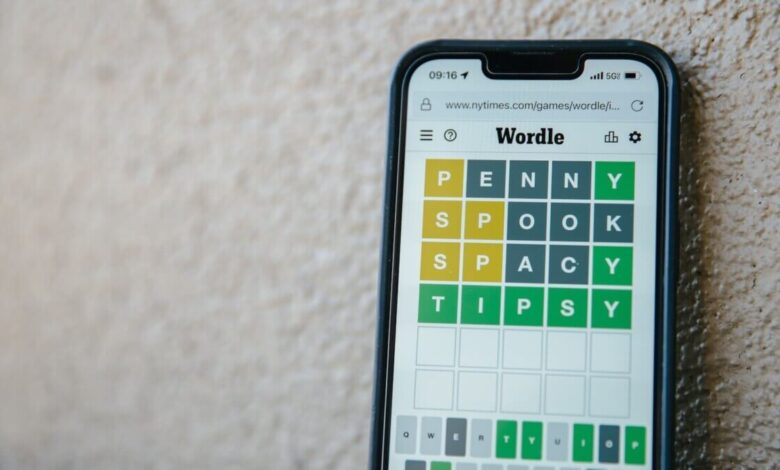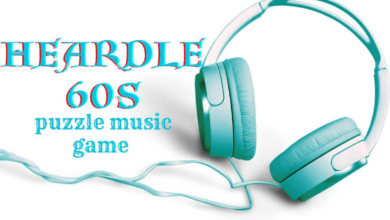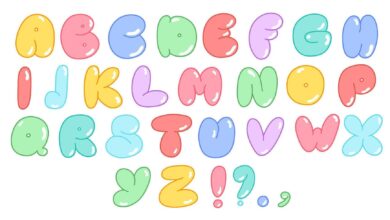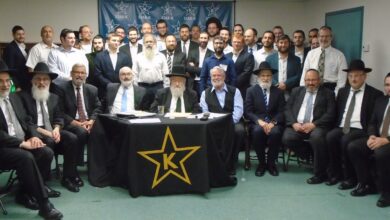Wordle Junior Tips: Mastering the Game with Ease

Introduction
Wordle Junior, an engaging adaptation of the popular game Wordle, is specifically designed for younger players. As children begin to develop their language skills, interactive word games like Wordle Junior can provide an enjoyable way to enhance their vocabulary and cognitive abilities. This guide will explore the fundamentals of Wordle Junior, offer tips for getting started, and provide strategies for success. Whether you’re a parent, teacher, or caregiver, this guide will help you introduce Wordle Junior into your child’s routine effectively.
Overview of Wordle Junior
Wordle Junior brings the excitement of the original Wordle game to a younger audience. While the concept remains similar—guessing a hidden word based on given clues—Wordle Junior simplifies the rules and adjusts the difficulty to make it more accessible for children. The game features shorter words and more straightforward clues, ensuring that young players can enjoy the challenge without feeling overwhelmed. By integrating educational elements, Wordle Junior aims to make learning new words fun and interactive.
Why Word Games for Kids?
Word games like Wordle Junior play a crucial role in a child’s development. They not only help in expanding vocabulary but also enhance critical thinking and problem-solving skills. Engaging in word games encourages children to think creatively and make connections between letters and meanings, which can significantly boost their literacy skills. Moreover, these games often involve a social element, whether played with family or friends, fostering teamwork and communication. By incorporating Wordle Junior into daily activities, parents and educators can provide children with a valuable tool for learning while ensuring they have fun.
What to Expect from This Guide
In this comprehensive guide, we will cover the essential aspects of Wordle Junior, including its gameplay, educational benefits, and strategies for maximizing its effectiveness. We will also delve into reviews and feedback from parents, children, and educational experts to provide a well-rounded perspective on the game. Whether you are new to Wordle Junior or looking for ways to enhance your child’s experience, this guide will offer valuable insights and practical advice.
1. Understanding Wordle Junior
What is Wordle Junior?
Wordle Junior is a kid-friendly version of the widely popular game Wordle. The game maintains the core concept of Wordle, where players guess a hidden word based on a series of clues. However, Wordle Junior modifies the gameplay to suit younger players by using shorter words and providing more straightforward hints. The game is designed to be both entertaining and educational, helping children develop their language skills in an engaging way. By focusing on simpler words and clues, Wordle Junior ensures that children can participate and enjoy the game without frustration.
How It Differs from the Original Wordle
While Wordle Junior retains the essence of the original game, it introduces several key differences to make it more suitable for children. The primary modification is the length and complexity of the words used. In Wordle Junior, words are generally shorter and less challenging, which helps to avoid discouraging young players. Additionally, the clues provided are more direct, reducing the cognitive load on players and allowing them to focus on learning rather than struggling with complex hints. These adjustments ensure that Wordle Junior is accessible and enjoyable for its intended audience.
Target Age Group
Wordle Junior is aimed at children aged 6 to 12 years, though its flexible design means it can be enjoyed by a broader age range depending on the individual’s reading level and experience. The game’s simplified rules and shorter words make it an ideal choice for early readers and those just starting to develop their vocabulary. By targeting this age group, Wordle Junior provides a platform for children to build their language skills in a supportive and engaging environment.
Educational Benefits
The educational benefits of Wordle Junior are significant. The game promotes vocabulary expansion by exposing children to new words and their meanings. As players guess the hidden word, they practice spelling, letter recognition, and word formation. This interactive approach to learning helps reinforce language skills in a way that traditional methods may not. Furthermore, the problem-solving aspect of the game encourages critical thinking and analytical skills, making Wordle Junior a valuable tool for holistic cognitive development.
2. Getting Started with Wordle Junior
Setting Up the Game
Getting started with Wordle Junior is simple and straightforward. The game can be played with just a pencil and paper or through various digital platforms if available. To begin, players need to choose a hidden word from the game’s word list, which is usually provided with the game or can be selected based on the players’ reading levels. Once the word is chosen, players take turns guessing letters or words based on the clues provided. The goal is to guess the hidden word before running out of attempts.
Basic Rules and Gameplay
The basic rules of Wordle Junior are designed to be easy for children to understand. Players are given a set number of guesses to figure out the hidden word. Each incorrect guess results in a clue being provided, which helps players narrow down their options. The game continues until the hidden word is guessed correctly or the maximum number of attempts is reached. The simplicity of the rules ensures that children can quickly grasp the gameplay and start enjoying the game.
Tips for First-Time Players
For first-time players, starting with simpler words and fewer clues can help ease the learning curve. It’s also helpful to explain the rules clearly and provide examples to illustrate how the game works. Encouraging children to think about common letter patterns and word structures can improve their chances of guessing the hidden word. Additionally, making the game a fun and relaxed activity will help children feel more comfortable and engaged.
How to Use the Game in Educational Settings
Wordle Junior can be effectively used in educational settings to support language development. Teachers can incorporate the game into classroom activities to reinforce vocabulary lessons or use it as a reward for completing assignments. The game’s adaptable nature allows it to be tailored to various educational objectives, making it a versatile tool for enhancing language skills. By integrating Wordle Junior into lesson plans, educators can create an interactive and enjoyable learning experience for students.
3. Strategies for Success
Common Challenges and Solutions
Players may encounter several challenges when playing Wordle Junior, such as difficulty in guessing the hidden word or interpreting clues. To address these challenges, it’s important to provide additional hints or simplify the clues if needed. Encouraging players to focus on letter patterns and common word structures can also help them make more informed guesses. Regular practice and familiarization with the game’s mechanics will improve players’ confidence and problem-solving abilities.
Effective Word Building Tips
To excel at Wordle Junior, players should focus on building their word-building skills. This involves practicing spelling, understanding letter patterns, and recognizing word structures. Players can benefit from playing word games regularly and engaging in activities that promote vocabulary expansion. Using flashcards or word lists to reinforce learning can also be beneficial. By developing these skills, players will enhance their ability to guess words accurately and enjoy the game more fully.
Fun Variations and Extensions
Adding variations and extensions to Wordle Junior can make the game more engaging and educational. For example, players can try creating their own hidden words or use themed word lists related to specific topics. Introducing time limits or adding bonus points for creative guesses can also add excitement to the game. These variations not only keep the game fresh and entertaining but also provide additional opportunities for learning and skill development.
Involving Family and Friends
Wordle Junior can be a great way to involve family and friends in educational activities. Playing the game together fosters a sense of teamwork and encourages social interaction. Organizing family game nights or playdates centered around Wordle Junior can make learning enjoyable and create memorable experiences. By involving others in the game, children can benefit from diverse perspectives and support, making the game a more enriching experience.
4. Reviews and Feedback
What Parents Are Saying
Parents have generally responded positively to Wordle Junior, praising its educational value and engaging gameplay. Many parents appreciate the game’s ability to make learning new words fun and interactive. They also highlight how the game provides a meaningful way to spend quality time with their children. However, some parents note that while the game is excellent for younger children, older kids may find it less challenging. Overall, Wordle Junior is well-regarded for its educational benefits and enjoyable experience.
Children’s Reactions
Children’s reactions to Wordle Junior are often enthusiastic, with many enjoying the challenge and excitement of guessing hidden words. The game’s simplicity and interactive nature make it appealing to young players, who appreciate the opportunity to test their word skills in a playful setting. Feedback from children indicates that they find the game both fun and educational, with many expressing a desire to play it regularly.
Educational Experts’ Opinions
Educational experts recognize Wordle Junior as a valuable tool for language development. They emphasize the game’s ability to enhance vocabulary, spelling, and problem-solving skills in a fun and engaging manner. Experts also note that the game’s adaptability makes it suitable for various educational settings, from home to the classroom. The positive feedback from educators underscores Wordle Junior’s effectiveness as an educational resource.
Comparison with Other Word Games
When compared to other word games, Wordle Junior stands out for its focus on younger players and its educational benefits. While similar games may offer comparable word-building challenges, Wordle Junior’s simplified rules and targeted vocabulary make it particularly suitable for early readers. Its ability to combine fun with learning sets it apart from other word games, making it a valuable addition to any child’s educational toolkit.
Conclusion
Wordle Junior is an excellent way to introduce children to the world of word games. With its simplified rules, educational benefits, and engaging gameplay, it offers a fun and interactive method for developing language skills. By incorporating Wordle Junior into daily activities, parents and educators can provide children with a valuable learning experience that is both enjoyable and effective. Whether used in the classroom or at home, Wordle Junior is a fantastic tool for fostering a love of words and enhancing vocabulary.





